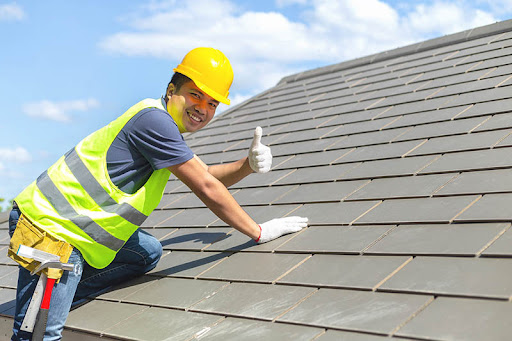Roofing contractors come in all shapes and sizes, from small local businesses to large national corporations. And each has to be able to offer you a variety of services. Many offer the same or similar services, but what sets them apart is the level of expertise they offer. Being cautious as a homeowner is key. But how do you know which roofing contractor you should choose?
References
Ask for references from your prospective roofing contractors. This is probably the most important thing you can do. References will tell you a lot about the quality of work performed and the level of customer service that you can expect. If they can’t provide you with references, you should probably look elsewhere. Quality roofers have nothing to hide and should have no problem giving references. You can also check for references on the contractor’s website and social media. When you are reaching out to the references, ask the following questions because it will give you a good feel of how your experience with the contractors will be:
If they were satisfied with the work.
If the project was completed on time.
If the project was completed on budget. If it ran over the budget, you should find out by how much.
If they were professional and courteous. This includes things like keeping their communication line open
Experience
No matter how good of a roofer a contractor might be, if they don’t have the experience to back that up, you might be in for some trouble. Avoid inexperienced contractors and look for those with a proven history of providing quality service in the area. A decade-plus of experience is ideal since it shows they are established, and many clients trust their services. Newer contractors can be just as good, but they need to prove themselves first through references and proof of work.
Certifications
Many roofing contractors are certified by the National Roofing Contractors Association. Certification is not mandatory, but it is a good sign that the contractor is qualified and knowledgeable. There are also several other certifications available, and some can be more beneficial than others. Manufacturer-certified contractors, for instance, have received training and education from the product manufacturers themselves, and hence you are likely to get the best out of their services.
Insurance
You should make sure that all of your contractors are insured and bonded for your safety because if anything goes wrong while an uninsured contractor is working on your roof, you will be responsible for the damages. Check whether the contractor has workers’ compensation and general liability insurance. Worker’s compensation covers employees who get injured on the job, and general liability insurance covers lawsuits for property damages.
Payment Options
A good roofing contractor will be willing to work with you on payment options. Some will prefer to be paid for their services in full before starting the job. Others will ask for a percentage of the total cost upfront and the rest upon completion. These costs can vary by contractor. You want to look for one that offers you the payment options that are most flexible for you.
Warranty
Every roofing contractor should offer a warranty of some sort, whether it’s a manufacturer’s warranty or a warranty of their own. Warranties are a great way to ensure that you get the best out of your new roof and that it lasts for years to come. A good roofing warranty should be a minimum of 10 years, or 20 years if you are getting a metal roof.
Materials
The roofing materials that a contractor uses are crucial in determining the quality of the roof that you get. If a contractor offers you low-quality materials, there is no way you will be getting a quality roof. Always ask for product samples before you agree to have your roof done. If they refuse to give you samples, it is a sign they may not have the best products.
Roofs are undoubtedly expensive and demand a skillful roofer who will get the job right the first time. Although your budget plays a huge part in determining the contractor you will hire, costs only should not be the determining factor because a cheaply done roof may require reroofing not too long in the future. After setting aside your budget, don’t be afraid to ask these seven questions since they will help you get a quality roof that will last for years.



















